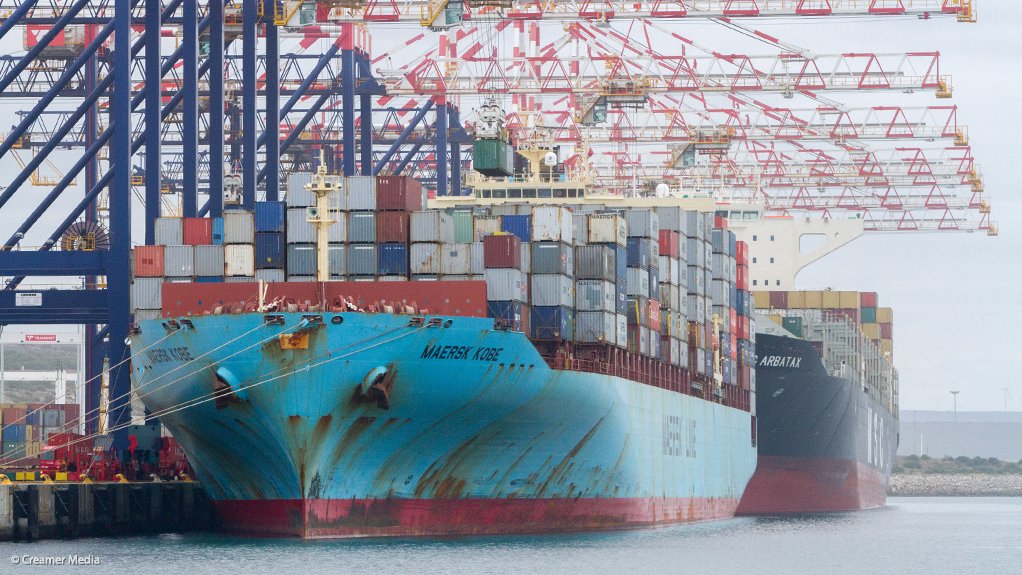State-owned freight logistics utility Transnet has initiated a process through which it aims to test whether international port terminal operators have the appetite to partner with it to improve the functioning of two underperforming container terminals at the ports of Durban and Ngqura respectively.
Public Enterprises Minister Pravin Gordhan announced on Monday that a request for information (RFI) would be released for the Durban Container Terminal (DCT) Pier 2 operation, as well as the Ngqura Container Terminal (NCT) as part of a broader process of port reform that includes securing new private funding and expertise.
On June 22, President Cyril Ramaphosa announced the establishment of the Transnet National Ports Authority (TNPA) as an independent subsidiary of Transnet, with its own interim board, with a permanent board to follow.
The creation of the separate subsidiary is meant to ensure that the ports authority makes its own investment decisions and that TNPA treats all terminal operators, public or private, fairly and equally.
Gordhan said the RFI responses would guide Transnet in designing a formal request for proposals (RFP), which should be released in November.
He indicated that Transnet remained open minded on the eventual concession model and did not rule out the prospect of an international terminal operator holding a majority equity position.
The RFP responses would be evaluated by February and partners could be announced by June next year.
Transnet CEO Portia Derby said that a transaction adviser was being appointed to oversee the process and to assist the utility in securing the best value for Transnet and the country.
She indicated that any partnership with a private terminal operator at DCT Pier 2 would need to be aligned with Transnet’s desire to create a “super terminal” at the Port of Durban by 2032.
The full plan, which no longer includes the so-called dig-out port at the site of the old Durban International Airport, could involve a total investment of about R100-billion.
Transnet believes the dig-out port may still be required after 2045, but is currently developing a portion of the site into an automotive logistics hub for component suppliers to Toyota.
The initial focus of the RFI, however, is solely on securing partners for Transnet Port Terminals at DCT Pier 2 and NCT.
Both terminals are operating below their installed nameplates of 2.4-million twenty-foot equivalent units (TEUs) at DCT Pier 2 and 1.3-million TEUs at NCT.
“We are going out into the market to test the appetite,” Derby said, adding that it was also in parallel negotiations with its unions to ensure that the final arrangement had worker buy-in.
Transnet chairperson Popo Molefe stressed that the move to secure partners did not represent a privatisation of public assets, which would continue to be owned by the State.
It did, however, reflect the need for Transnet to secure fresh finance and expertise to both expand the country’s container handling capacity and to improve efficiencies, which had been knocked again recently by widespread riots in KwaZulu-Natal and Gauteng and by a cyberattack on ports.
A 2020 World Bank report ranked both Durban and Ngqura as among the worst-performing container ports in the world.
EMAIL THIS ARTICLE SAVE THIS ARTICLE ARTICLE ENQUIRY
To subscribe email subscriptions@creamermedia.co.za or click here
To advertise email advertising@creamermedia.co.za or click here











